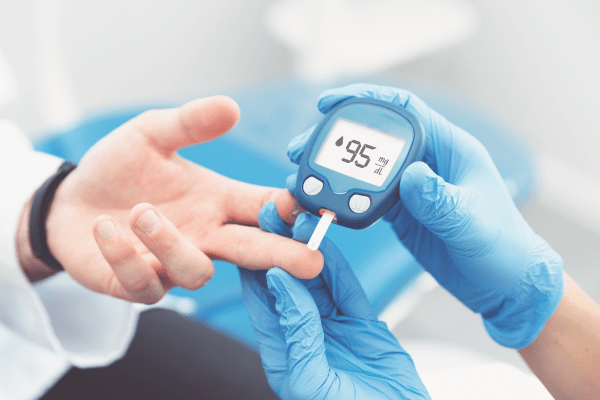Managing diabetes requires an approach that extends beyond medication. Lifestyle modifications play a role in maintaining stable blood glucose levels and preventing complications. These changes encompass dietary adjustments, physical activity, regular monitoring, and stress management techniques that work together to support overall health and well-being.
Maintain a Balanced Diet
A well-structured eating plan serves as the foundation for diabetes management. Focus on consuming whole foods that provide steady energy without causing dramatic blood sugar spikes. Complex carbohydrates found in vegetables, legumes, and whole grains digest slowly, helping to maintain consistent glucose levels throughout the day. Lean proteins, such as fish, poultry, and plant-based options, support muscle health while having a minimal impact on blood sugar levels.
Portion control remains equally beneficial as food selection. Using the plate method can help guide meal planning: fill half your plate with non-starchy vegetables, one-quarter with lean protein, and one-quarter with complex carbohydrates. Regular meal timing also supports blood sugar stability by preventing extreme fluctuations that occur with irregular eating patterns.
Stay Physically Active
Regularly exercising improves insulin sensitivity and helps muscles utilize glucose more effectively.
- Aim for at least 150 minutes of moderate-intensity aerobic activity weekly, such as brisk walking or swimming.
- Include resistance training exercises twice per week to build muscle mass and improve glucose uptake.
- Break up prolonged sitting periods with short walks or light stretching every 30 minutes.
- Start gradually if you’re new to exercise and progressively increase intensity and duration.
- Try activities you enjoy, such as dancing, gardening, or cycling, to maintain long-term consistency.
Monitor Blood Sugar Levels
Frequent blood glucose monitoring offers valuable insights into how your body responds to various foods, activities, and stressors. Testing at consistent times helps establish patterns and identify trends that may require attention. Most individuals benefit from checking levels before meals, two hours after eating, and at bedtime to understand daily fluctuations.
Modern glucose monitoring systems offer continuous tracking capabilities, providing real-time data without the need for frequent finger pricks. These devices can alert you to concerning trends and help you make immediate adjustments to diet or activity. Keep detailed records of your readings, along with notes about meals, exercise, and sleep patterns, to share with your healthcare team during appointments.
Manage Stress Effectively
Chronic stress can elevate blood glucose levels and interfere with diabetes management routines.
- Practice deep breathing exercises or meditation for 10-15 minutes daily to activate relaxation responses.
- Establish consistent sleep schedules, aiming for 7-9 hours of quality rest each night.
- Engage in regular physical activity, which naturally reduces stress hormones and improves your mood.
- Build strong social connections through family relationships, friendships, or community groups.
- Seek professional counseling or join support groups specifically designed for individuals with diabetes.
- Limit exposure to stressful situations when possible and develop healthy coping strategies.
Take Control of Your Diabetes
Making lifestyle changes takes patience and gradual adjustments, not overnight transformations. Work with your healthcare team to develop a personalized plan that fits your needs and medical history. Regular check-ups help track progress and fine-tune your approach. Small, consistent changes often lead to better, more sustainable results. With dedication and the right guidance, these changes can improve your quality of life and support better blood glucose control. Contact your doctor to get started.









Leave a Reply